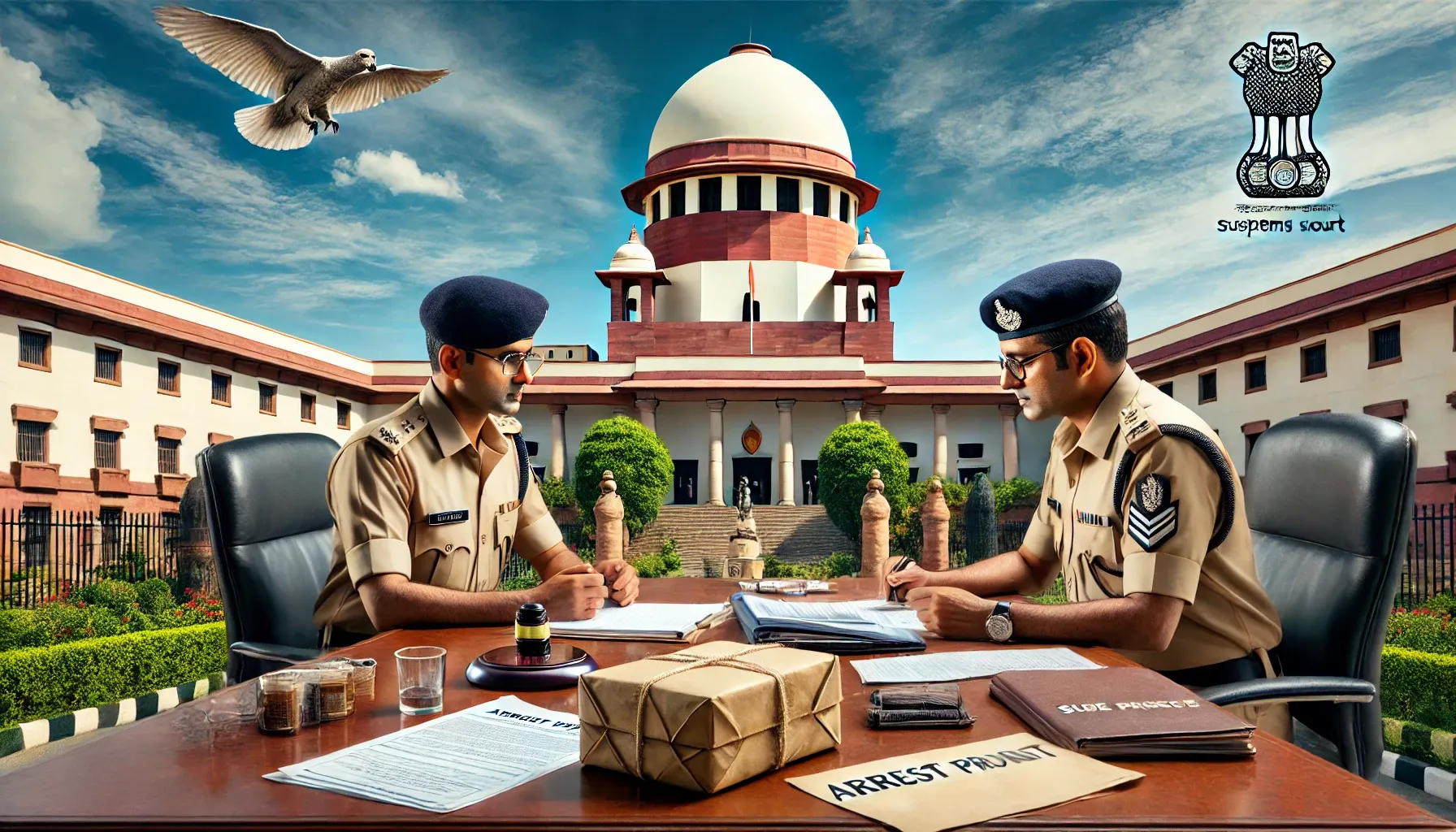The Supreme Court of India has delineated the arrest powers of customs officers, emphasizing that they are distinct from police officers and are required to meet a higher standard of 'reasons to believe' before proceeding with an arrest."

The Supreme Court of India has ruled that customs officers are not police officers and must satisfy a higher standard of "reasons to believe" before making an arrest under the Customs Act. The verdict was delivered by a bench comprising Chief Justice of India Sanjiv Khanna, and Justices MM Sundresh and Bela M Trivedi, in response to 279 petitions challenging the penal provisions of the Customs Act, CGST Act, and SGST Act. The ruling aims to ensure greater accountability in customs enforcement and prevent arbitrary detentions.
Customs Officers Are Not Police Officers: Supreme Court Relies on Precedents
- The Court held that the argument equating customs officers with police officers was "unfounded and flawed."
- Several landmark Supreme Court judgments were cited to support this view, including:
- State of Punjab v. Barkat Ram
- Ramesh Chandra Mehta v. State of West Bengal (Constitution Bench)
- Illias v. Collector of Customs (Constitution Bench)
- The Court also referred to the recent judgment in Tofan Singh v. State of Tamil Nadu, where the majority opinion reaffirmed the distinction between police officers and customs officers.
Customs Officers Have Extensive Powers But Must Follow Procedural Safeguards
- While customs officers do not conduct investigations as per Chapter XII of the CrPC, they possess broad powers under the Customs Act, including:
- The authority to investigate offenses
- The power to arrest individuals suspected of customs violations
- The ability to seize goods and evidence
- The right to interrogate suspects
- The Court emphasized that customs officers must adhere to strict procedural obligations when exercising their powers, including:
- Providing clear and recorded reasons for arrest
- Maintaining detailed documentation of enforcement actions, including:
- Name of the informant
- Name of the accused individual
- Nature of the alleged customs violation
- Details of information received by the customs officer
- Exact time of arrest
- Seizure records and evidence collected
- Statements recorded during the investigation
Application of CrPC Provisions to Customs Officers
- The Court ruled that certain CrPC provisions apply to customs officers, ensuring procedural fairness and protecting the rights of arrested individuals. These include:
- Section 41B CrPC – Customs officers must carry identification badges with their names clearly displayed when making an arrest.
- Section 41D CrPC – A person arrested by a customs officer has the right to meet an advocate of their choice during interrogation, though not throughout the entire investigation.
- Section 50A(2) & (3) CrPC – An arrested person must be informed of their right to notify a family member or relative about their arrest and place of detention.
- Compliance with these provisions must be documented, and the Magistrate must verify that the customs officer followed due process when the accused is presented in court.
Stricter Threshold for Arrests Under the Customs Act
- The Court clarified that customs officers are subject to a higher legal threshold for making arrests compared to police officers under the CrPC.
- Under Section 41 of the CrPC, a police officer can arrest a person without a warrant if:
- A reasonable complaint has been made
- Credible information has been received
- Reasonable suspicion exists that the person has committed a cognizable offense
- In contrast, Section 104(1) of the Customs Act states that a customs officer can arrest an individual only if they have "reasons to believe" that an offense has been committed.
- The Court explained:
- "A person is said to have a 'reason to believe' a thing if they have sufficient cause to believe that thing but not otherwise."
- This "reasons to believe" standard is more stringent than "mere suspicion", as required under Section 41 CrPC.
Case Title: Radhika Agarwal v. Union of India and Ors., W.P.(Crl.) No. 336/2018 (and connected matters)
Attachment:





